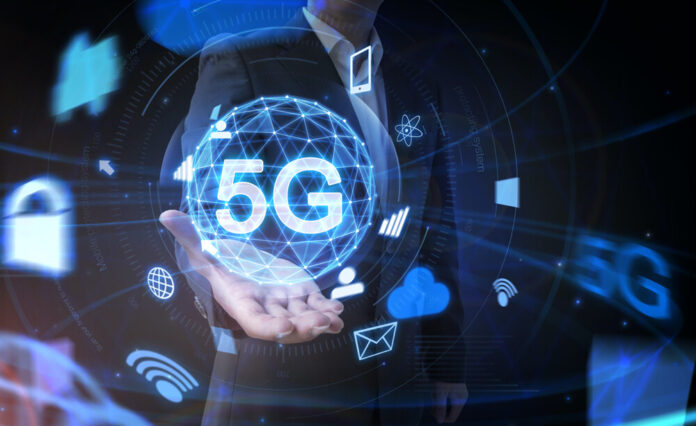The Foundation of 5G Technology: Understanding the Basics
The advent of 5G technology marks a significant leap forward in the realm of telecommunications, promising unprecedented speeds, lower latency, and massive connectivity capable of transforming industries and daily life.
At its core, 5G represents the fifth generation of mobile networks, succeeding its predecessors (3G and 4G) by delivering enhanced performance and enabling new applications that were previously impractical. Unlike its predecessors, which primarily focused on connecting people, 5G aims to interconnect machines, devices, and objects through the Internet of Things (IoT), paving the way for a hyper-connected world where everything from smart cities to autonomous vehicles operates seamlessly.
Importance of Doing a Course for Career Boost:
Participating in the 5G Courses in India is crucial for professionals looking to capitalise on this technology’s transformative potential. Such courses provide a deep understanding of the foundational principles of 5G, including its architecture, spectrum allocation, and deployment strategies. By gaining proficiency in these areas, professionals can position themselves as valuable assets in industries at the forefront of 5G adoption, such as telecommunications, IT infrastructure, and IoT development.
As industries increasingly rely on 5G to drive efficiency, innovation, and economic growth, professionals equipped with specialised knowledge and skills will be well-positioned to lead and thrive in this rapidly evolving landscape.
5G and the Internet of Things: A New Era of Smart Devices
5G technology represents a pivotal advancement in telecommunications, poised to revolutionise the Internet of Things (IoT) landscape by enabling a new era of interconnected smart devices. Here’s how 5G will shape this transformative future:
- Enhanced Connectivity: 5G offers significantly faster speeds and lower latency compared to previous generations, facilitating seamless connectivity between an unprecedented number of IoT devices.
- Scalability and Capacity: 5 G expands the scalability of IoT deployments by supporting a massive number of connected devices per square kilometre. This scalability is essential for smart cities, where millions of sensors and devices will communicate to optimise energy usage, manage traffic flow, and enhance public safety.
- Industry Applications: 5G-powered IoT applications are set to transform industries like manufacturing, agriculture, and logistics. Smart factories, for instance, can utilise real-time data analytics from IoT sensors to optimise production processes, predict maintenance needs, and reduce downtime, ultimately improving operational efficiency and profitability.
- Innovation in Healthcare: In healthcare, 5G enables the proliferation of IoT-enabled medical devices and remote patient monitoring solutions. Healthcare providers can deliver personalised care through wearable devices that transmit real-time health data to doctors, faciitating early diagnosis and timely interventions.
- Smart Home Integration: With 5G, smart homes will become more interconnected and responsive. From intelligent appliances and energy management systems to security cameras and virtual assistants, IoT devices in homes will operate seamlessly, enhancing convenience, energy efficiency, and security.
- Technological Advancements: The combination of 5G and IoT fuels advancements in augmented reality (AR) and virtual reality (VR) applications. These technologies can deliver immersive experiences in gaming, training simulations, and remote collaboration, leveraging 5G’s high bandwidth and low latency to provide smooth, real-time interactions.
Beyond Speed: The Real Benefits of 5G Connectivity
- Low Latency: Enables near-instantaneous communication between devices, which is critical for applications like autonomous vehicles and remote surgeries.
- Massive Connectivity: Supports a vast number of devices per square kilometre, essential for IoT deployments in smart cities and industrial automation.
- High Reliability: Provides consistent connectivity, reducing downtime and improving reliability for mission-critical applications.
- Enhanced Capacity: It seamlessly handles increased data volumes, supporting bandwidth-intensive applications such as 4K streaming and virtual reality.
- Energy Efficiency: Optimizes energy consumption compared to previous network generations, benefiting IoT devices with longer battery life
- Edge Computing Integration: Facilitates processing data closer to the source (edge computing), reducing latency and enhancing real-time decision-making.
- IoT Expansion: Drives innovation in IoT applications across industries, from healthcare and agriculture to manufacturing and logistics.
- Augmented Reality (AR) and Virtual Reality (VR): Enables immersive experiences with seamless, high-quality streaming and interaction capabilities.
- Smart City Solutions: Powers solutions for traffic management, environmental monitoring, public safety, and efficient resource allocation.
- Remote Work Enablement: This product supports remote work with reliable, high-speed connectivity for video conferencing, cloud applications, and collaboration tools.
- Telemedicine Advancements: Enhances telehealth services with real-time patient monitoring and remote diagnostics, improving healthcare access and outcomes.
- Security Enhancements: Introduces improved security protocols to protect data transmission and IoT devices from cyber threats.
- Innovation Catalyst: Enabling faster data processing and analysis fuels innovation in technologies like artificial intelligence (AI), machine learning, and blockchain.
- Global Connectivity: Facilitates seamless international roaming and connectivity, benefiting travellers and global businesses.
- Economic Growth: Stimulates economic growth through job creation, industry innovation, and enhanced productivity across sectors.
Conclusion:
The future of 5G holds immense promise as it continues to reshape our world, offering unprecedented opportunities and transforming industries across the globe. With its ability to support massive connectivity, ultra-low latency, and enhanced reliability, 5G is set to revolutionise sectors ranging from healthcare and transportation to manufacturing and entertainment. As intelligent cities emerge and autonomous vehicles become mainstream, 5G will serve as the backbone of these innovations, enabling real-time communication and data exchange at an unprecedented scale.
Participating in a 5G course is not just advantageous but essential for professionals aiming to harness its transformative power. These courses provide in-depth knowledge of 5G technologies, architectures, and applications, equipping individuals with the expertise needed to drive innovation and lead initiatives in their respective fields.
In a competitive job market where technological advancements play a pivotal role, acquiring 5G-related skills and certifications significantly enhances career prospects. Professionals who invest in continuous learning and skill development through 5G Courses in India not only enhance their professional credibility but also position themselves as indispensable assets in industries poised for 5G adoption and integration.
Also Read: High-speed Airtel 5G services now available in 13 J-K towns







